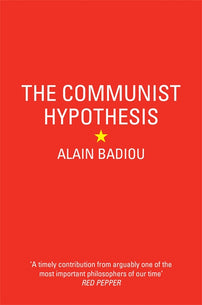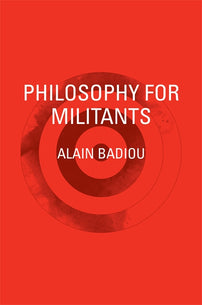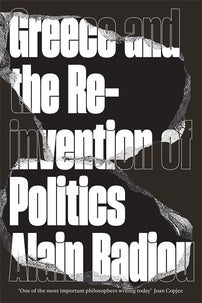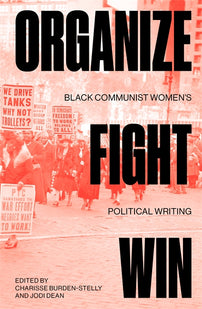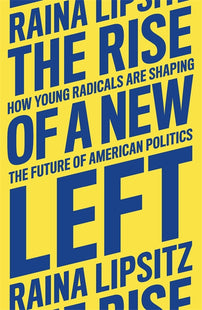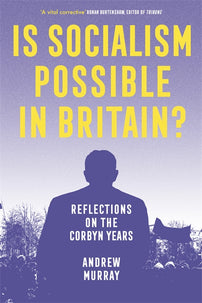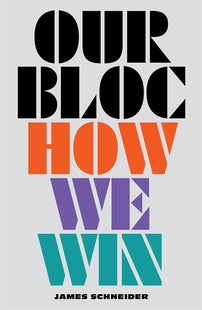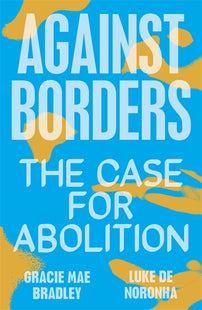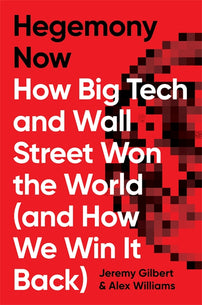Thirteen theses and some comments on politics today
The current conjuncture demands rigorous analysis if we are to understand the political moment and develop a strategy to respond to it. Alain Badiou undertakes this task, offering thirteen theses on global politics today and suggesting an organizing strategy for the Left given those conditions.

This article was originally published by L’Obs on 2 September 2022.
Thesis 1. The global conjuncture is one of the territorial and ideological hegemony of liberal capitalism.
Commentary. The obviousness and banality of this thesis dispense me from commenting.
Thesis 2. This hegemony is by no means in crisis, still less in a coma, but in a particularly intense and innovative sequence of its deployment.
Commentary. On the subject of the capitalist globalisation that is totally hegemonic today, there are two opposing positions that are equally false. The first is the conservative position: capitalism, especially combined with parliamentary ‘democracy’, is humanity’s definitive form of economic and social organisation. It is in fact the end of history, as the essayist Fukuyama once popularised. The second is the leftist position according to which capitalism has entered its final crisis, or is even already dead.
The first position is simply a repetition of the ideological process begun in the late 1970s by the renegade intellectuals from the ‘red years’ (1965-1975), which consisted in simply eliminating the communist hypothesis from the field of possibilities. This made it possible to simplify the dominant propaganda: there was no longer any need to praise the (dubious) merits of capitalism, but only to maintain that facts (the USSR, Lenin, Stalin, Mao, China, the Khmer Rouge, the Western communist parties, etc.) had shown that nothing else was possible except criminal ‘totalitarianism’.
Faced with this verdict of impossibility, the only response is to re-establish the communist hypothesis, assessed beyond the fragmentary experiments of the last century, in its possibility, its strength and its liberating capacity. This is what is happening and inevitably will happen, and what I am trying to do in this very text.
The scenarios of bloodless capitalism or dead capitalism base themselves on the financial crisis of 2008, on the inflationary monetary disorders brought about by the Covid-19 pandemic, and on the countless episodes of corruption revealed daily. They conclude either that the moment is revolutionary, that all it takes is a strong push for the ‘system’ to collapse (classic leftism), or that all it takes is to step aside, to withdraw for example to the countryside and lead a sober life respectful of nature, to realise that we can then organise completely new ‘forms of life’, the destructive capitalist machine turning in a vacuum into its final nothingness (ecological Buddhism).
All of this has no connection whatsoever with reality.
Firstly, the crisis of 2008 was a classic crisis of overproduction (too many houses were built in the US and sold on credit to insolvent people), and, in due course, its propagation created the conditions for a new capitalist impetus, boosted by a strong sequence of concentration of capital, with the weak being washed away, the strong strengthened, and in passing – a very important gain – the ‘social legislation’ stemming from the end of the Second World War largely liquidated. Once this painful tidying up is done, ‘recovery’ is now in sight. Secondly, the extension of the capitalist grip to vast new territories, the intensive and extensive diversification of the world market, is far from complete. Almost all of Africa, a good part of Latin America, Eastern Europe, India are all ‘in transition’, either zones of plunder or countries ‘taking off’, where large-scale market implantation can and must follow the example of Japan or China.
The fact is that capitalism is corrupt in its essence. How can a collective logic whose only norms are ‘profit above all else’ and universal competition of all against all avoid widespread corruption? The recognised ‘cases’ of corruption are only side operations, either local purges for propagandist purposes or settling of scores between rival cliques.
Modern capitalism, that of the world market, which with its few centuries of existence is historically a recent social formation, has only just begun to conquer the planet, after a colonial sequence (from the sixteenth to the twentieth century) in which conquered territories were enslaved to the limited and protectionist market of a single country. Today, plundering is globalised, as is the proletariat, which now comes from every country in the world.
Thesis 3. However, three active contradictions are at work in this hegemony.
i) The extremely developed oligarchic dimension of the possession of capital leaves ever less room for the integration of new owners into this oligarchy. Hence the possibility of authoritarian sclerosis.
ii) The integration of financial and commercial circuits into a single world market is opposed by the maintenance, at the level of mass policing, of national forms that inevitably enter into rivalry. Hence the possibility of a planetary war resulting in one state that is clearly hegemonic, including over the world market.
iii) It is doubtful today whether capital, in its present line of development, can valorise the labour-power of the entire world population. Hence the risk that a mass of totally deprived and therefore politically dangerous people will form on a global scale.
Commentary.
i) We are now at a point where 264 people own the equivalent of what three billion others own – and the concentration continues. Here, in France, 10 per cent of the population own well over 50 per cent of the total wealth. These are concentrations of ownership with no stable precedent on a global scale. And they are far from complete. They have a monstrous side, which obviously does not guarantee them eternal duration, but is inherent to capitalist deployment, and even its main motor.
ii) The hegemony of the United States is increasingly being undermined. China and India between them have 40 per cent of the world’s workforce. This indicates a devastating deindustrialisation in the West. In fact, American workers now account for only 7 per cent of the global labour force, and Europe even less. The result of these contrasts is that the world order, still dominated for military and financial reasons by the USA, is seeing the emergence of rivals who want their share of sovereignty over the world market. Confrontations have already begun in the Middle East, Africa and the China seas. They will continue. War is the horizon of this situation, as the last century has shown, with two world wars and incessant colonial killings, and as the war in Ukraine confirms today.
iii) Already today there are probably between two and three billion people who are neither owners, landless peasants, petty-bourgeois employees or workers. They wander the world in search of a place to live, constituting a nomadic proletariat which, if politicised, would become a very considerable threat to the established order.
[book-strip index="1" style="display"]Thesis 4. In the last ten years, there have been numerous, and sometimes vigorous, movements of revolt against this or that aspect of the hegemony of liberal capitalism. But they have also been resolved without posing any major problem to the dominant capitalism.
Commentary. These movements have been of four kinds.
i) Brief and localised riots. There have been large, spontaneous riots in the suburbs of major cities, for example London and Paris, usually following police killings of young people. These riots either lacked widespread support in a frightened public and were mercilessly suppressed, or were followed by vast ‘humanitarian’ mobilisations, focused on police violence, largely depoliticised in the sense that no mention was made of the precise nature of these exactions and the profit that bourgeois domination ultimately draws from them.
ii) Sustained uprisings, but without an organisational creation. Other movements, notably in the Arab world, have been socially much broader and lasted for many weeks. They took the canonical form of square occupations. They were generally quelled by the temptation of elections. The most typical case was that of Egypt: a very large-scale movement, with the negative unifying slogan ‘Mubarak out’ enjoying apparent success (Mubarak left power, was even arrested), the inability of the police for a long time to take over the square, the explicit unity of Coptic Christians and Muslims, and the apparent neutrality of the army. But, in the elections, naturally, it was the party with a presence in the popular masses – though not very present in the movement – that won, namely the Muslim Brotherhood. The most active part of the movement opposed this new government, thus opening the way to an intervention of the army, which put a general, El-Sisi, in power. He mercilessly repressed all opposition, first the Muslim Brotherhood, then the young revolutionaries, and in fact re-established the old regime in a rather worse form than before. The circular nature of this episode is particularly striking.
iii) Movements leading to the creation of a new political force. In some cases, the movement was able to create the conditions for the emergence of a new political force, different from the regular ones of parliamentarianism. This was the case with Syriza in Greece, where revolts were particularly numerous and harsh, and with Podemos in Spain. These forces have dissolved into the parliamentary consensus. In Greece, the Tsipras government surrendered without significant resistance to the injunctions of the European Commission and returned the country to the path of endless austerity. In Spain, Podemos has also become bogged down in the game of parliamentary combinations, whether governmental or oppositional. No trace of real politics has emerged from these organisational creations.
iv) Movements of fairly long duration, but with no notable positive effects. In some cases, apart from a few classic tactical episodes (such as the ‘takeover’ of classic demonstrations by groups equipped to confront the police for a few minutes), the absence of political innovation meant that on a global scale it was the figure of conservative reaction that was renewed. This was the case, for example, in the USA, where the dominant counter-effect of ‘Occupy Wall Street’ was the coming to power of Trump, and also in France, where the outcome of ‘Nuit debout’ was Macron. A little later, indeed, Macron was the sole target of the typically petty-bourgeois Gilets Jaunes movement. Like all such movements, whose leaders are all frankly hostile to the eradication of bourgeois property, and in fact want stronger state support for it, the result only affected state formalities, and its sole target was President Macron. And the magnificent result, worthy of the farces and traps that the parliamentary system reserves for its clients, was in the end the re-election of Macron.
Thesis 5. The cause of this impotence in the movements of this last decade is the absence of politics – even hostility to politics – in various forms, recognisable by a number of symptoms. Beneath these negative sentiments there is in fact a constant submission to electoral ritual, under the spurious name of ‘democracy’.
Commentary. Let us note, in particular, as signs of an extremely weak political subjectivity:
i) Exclusively negative unifying slogans: ‘against’ this or that, ‘Mubarak out’, ‘down with the 1% oligarchy’, ‘reject the labour law’, ‘no one likes the police’ etc.
ii) The absence of a prolonged temporality: both in terms of knowledge of the past, which is practically absent from the movements (apart from a few caricatures), and of which no inventive assessment is proposed other than a projection into the future, limited to abstract considerations on liberation or emancipation.
iii) A vocabulary largely borrowed from the adversary. This is above all the case with a particularly equivocal category such as ‘democracy’, or the use of the category of ‘life’, ‘our lives’, which is only an ineffective investment of existential categories in collective action.
iv) A blind cult of ‘novelty’ and a disregard for established truths. This point is a direct result of the commercial cult of the ‘novelty’ of products and a constant conviction that something is being ‘started’ which, in reality, has already happened many times. At the same time, it prevents us from learning the lessons of the past, from understanding the mechanism of structural repetition, and leads us to fall into the trap of false ‘modernities’.
v) An absurd time scale. This time scale, modelled on Marx’s money—commodities—money’ circuit, assumes that problems such as private property and the pathological concentration of wealth, which have been pending for millennia, can be dealt with or even resolved by a few weeks of ‘movement’. The refusal to consider that a good part of capitalist modernity is simply woven from a modern version of the triplet ‘family, private property, state’ established a few thousand years ago, as early as the Neolithic ‘revolution’. And that therefore communist logic, as far as the central problems that constitute it are concerned, is situated on a scale of centuries.
vi) A weak relationship to the state. What is at issue here is a constant underestimation of the resources of the state compared to those available to this or that ‘movement’, in terms of both armed force and the capacity for corruption. In particular, the effectiveness of ‘democratic’ corruption, whose symbol is electoral parliamentarianism, is underestimated, as is the extent of the ideological dominance of this corruption over the overwhelming majority of the population.
vii) A combination of disparate means without any assessment of their distant or near past. No conclusions are drawn that can be widely popularised from the methods that have been used since at least the ‘red years’ (1965-1975), or even for two centuries, such as factory occupations, trade-union strikes, legal demonstrations, the formation of groups to enable local confrontation with the police, the storming of buildings, the sequestration of bosses in factories, and so on. Nor from their static symmetries: for example, in squares occupied by crowds, long and repetitive hyper-democratic assemblies, where everyone is called on to speak for three minutes, whatever their ideas and linguistic resources, and where the ultimate stake envisaged is simply the repetition of this exercise.
Thesis 6. We must remember the most important experiences of the near past, and reflect on their failures.
Commentary. From the red years to today.
The commentary on Thesis 5 may well seem quite polemical, even pessimistic and depressing, especially for young people who can legitimately enthuse, for a time, about all those forms of action which I ask to be critically re-examined. These criticisms are understandable if we remember that, personally, in May ’68 and its aftermath, I experienced and participated enthusiastically in things of exactly the same order, and was able to follow them long enough to measure their weaknesses. I have the feeling that recent movements are exhausting themselves by repeating, under the mark of the new, well-known episodes of what can be called the ‘right’ of the May ’68 movement, whether this right comes from the classical left or from the anarchist ultra-left, which in its own way was already talking about ‘forms of life’, and whose militants we called ‘anarcho-desirers’.
There were in fact four distinct movements in 1968.
i) a revolt of student youth;
ii) a revolt of young workers in the large factories;
iii) a general strike by the trade unions attempting to control the two previous revolts;
iv) the emergence, often under the name of ‘Maoism’ – with several rival organisations – of an attempt at a new politics, the principle of which was to draw a unifying axis between the first two revolts by endowing them with an ideological and fighting force that seemed able to guarantee them a real political future. In fact, this lasted for at least a decade. The fact that it did not stabilise on a historical scale (which I readily acknowledge) should not mean that we repeat what happened then without even knowing that we are repeating it.
Let’s just remember that the June 1968 elections produced a majority so reactionary that it could be compared with the ‘blue horizon’ chamber at the end of the First World War. The end result of the May/June 2017 elections, with the crushing victory of Macron, an attested servant of globalised big capital, should make us reflect on what is repetitive in all this. All the more so as the same Macron was re-elected in 2022.
Thesis 7. The internal politics of a movement must have five characteristics, relating to slogans, strategy, vocabulary, the existence of a principle, and a clarified tactical vision.
Commentary.
i) The main slogans must be affirmative, offering a positive determination, and not be satisfied with complaint and denunciation. This is even so at the cost of internal division as soon as one goes beyond negative unity.
ii) The slogans must be strategically justified. This means: informed by knowledge of the previous stages of the problem the movement is addressing.
iii) The vocabulary used must be controlled and consistent. For example: ‘communism’ is today incompatible with ‘democracy’; ‘equality’ is incompatible with ‘liberty’; any positive use of an identitarian term, such as ‘French’, or ‘international community’, or ‘Islamist’ or ‘Europe’, must be proscribed, as well as terms of a psychological nature, such as ‘desire’, ‘life’, ‘person’, and any term linked to established state provisions, such as ‘citizen’, ‘elector’, and so on.
iv) A principle, what I call an ‘Idea’, must be constantly confronted with the situation, insofar as it locally carries a non-capitalist systemic possibility. Here we must quote Marx, as he defined the tasks of militants and their mode of presence in movements: ‘Communists everywhere support every revolutionary movement against the existing social and political order of things. In all these movements they bring to the front, as the leading question in each, the property question, no matter what its degree of development at the time.’
v) Tactically, it is always necessary to bring the movement as close as possible to a body capable of coming together to effectively discuss its own perspective and that from which it illuminates and judges the situation.
Political activists, as Marx says, are part of the general movement, they do not separate themselves from it. They distinguish themselves solely by their ability to inscribe the movement in an overall point of view, to foresee from this what the next stage must be, making no any concession on these two points, even under the guise of unity, to the conservative conceptions which can perfectly well subjectively dominate even a major movement. The experience of revolutions shows that crucial political moments are in the form closest to a public meeting, where the decision to be taken is clarified by speakers who may also contradict one another.
Thesis 8. Politics gives the spirit of movements a specific duration, which should match the temporality of states, and not just be a negative episode in their domination. Its general definition is that it organises, among the various components of the people and on the largest possible scale, a discussion around slogans which must be those of permanent propaganda as well as of future movements. Politics provides the general framework for these discussions: it is the assertion that there are today two ways for the general organisation of humanity, the capitalist way and the communist way. The first is only the contemporary form of what has existed since the Neolithic revolution, a few thousand years ago. The second proposes a second global, systemic revolution in the future of humanity. It proposes to emerge from the Neolithic age.
Commentary. In this sense, politics consists in situating locally, through broad discussion, the slogan that crystallises the existence of these two roads in the current situation. Being local, this slogan can only come from the experience of the masses concerned. It is there that politics learns what can make the effective struggle for the communist road exist locally, whatever the means. From this point of view, the wellspring of politics is not right away antagonistic confrontation, but the continuous investigation, in situ, of the ideas, slogans and initiatives capable of bringing to life locally the existence of two roads, one of which is the conservation of what exists, the other its complete transformation according to egalitarian principles which the new slogan has to crystallise. The name of this activity is ‘mass work’. The essence of politics, outside of movement, is mass work.
[book-strip index="2" style="display"]Thesis 9. Politics is done with people from everywhere. It cannot submit to the various forms of social segregation organised by capitalism.
Commentary. This means, especially for intellectual youth, who have always played a crucial role in the birth of new politics, the need for a continuous journey towards other social strata, especially the most deprived, where the impact of capitalism is most devastating. In present conditions priority must be given, in our countries as well as on a world scale, to the vast nomadic proletariat, who, like the peasants of Auvergne or Brittany in the past, arrive in great waves, facing the worst risks, to try to survive as workers here, since they can no longer do so as landless peasants there. The method, in this case as in all others, is patient investigation on the spot: in markets, housing estates, hostels and factories, the organisation of meetings, even very small ones at the beginning, the fixing and dissemination of slogans, broadening the base of work, confrontation with the various local conservative forces, etc. This is exciting work, once you realise that the key is active stubbornness. An important step is to organise schools to spread knowledge of the global history of struggle between the two roads, its successes and its current impasses.
What was done by the organisations that arose for this purpose after May ’68 can and must be done again. We must reconstitute the political axis I mentioned, which is still today an axis between the youth movement, some intellectuals, and the nomadic proletariat. This is already being done here and there. It is the only properly political task of the moment.
What has changed in France is the deindustrialisation of the suburbs of the big cities. This provides the far right with its working-class support. It must be fought on the spot, by explaining why and how two generations of workers have been sacrificed in a few years, and by simultaneously investigating, as far as possible, the opposite process, namely the extremely violent industrialisation of Asia. Work with manual workers is always immediately international, even here. In this respect, it would be extremely interesting to produce and distribute a newspaper of the workers of the world.
Thesis 10. There is no real political organisation today. The task is therefore to see to the means of reconstituting it.
Commentary. An organisation is responsible for conducting surveys, synthesising mass work and the local slogans that have emerged from it, so as to place them in a global perspective, enriching the movements and monitoring their consequences over the long term. An organisation is judged not on its form and procedures, as one judges a state, but on its capacity to do what it is charged with. We can use a formula from Mao: such an organisation is one which can be said to ‘give back to the masses in a precise form what it has received from them in a still confused form’.
Thesis 11. The classical party form is defunct today because it defined itself, not by its capacity to do what Thesis 9 says, namely mass work, but by its claim to ‘represent’ the working class, or the proletariat.
Comment. We must break with the logic of representation in all its forms. The political organisation must have an instrumental definition, not a representative one. Besides, ‘representation’ means ‘identity of what is represented’. But identities must be excluded from the political field.
Thesis 12. As we have just seen, what defines politics is not the relationship to the state. In this sense, politics takes place ‘at a distance’ from the state. Strategically, however, it is necessary to break the state, because it is the universal guardian of the capitalist road, notably because it polices the right to private property of the means of production and exchange. As the Chinese revolutionaries said during the Cultural Revolution, we must ‘break with bourgeois right’. Therefore, political action towards the state is a mixture of distance and negativity. The aim is actually for the state to be increasingly surrounded by hostile opinion and political sites that have become alien to it.
Commentary. The historical record of this case is very complex. For example, the Russian Revolution of 1917 certainly combined several things, i.e. a broad hostility to the tsarist regime, including in the countryside because of the war, an intense and long-standing ideological preparation, especially in the intellectual strata, workers’ revolts leading to real mass organisations, called soviets, and soldiers’ uprisings, with the existence, thanks to the Bolsheviks, of a solid, diversified organisation, capable of holding meetings with orators who were first-rate in their conviction and their didactic talent. All of this took place with victorious insurrections and a terrible civil war that was finally won by the revolutionary camp, despite massive foreign intervention. The Chinese revolution followed a completely different course: a long march through the countryside, the formation of people’s assemblies, a real Red Army, the lasting occupation of a remote area in the north of the country, where agrarian and productive reform could be experimented with, at the same time as the army was being consolidated, the whole process lasting some thirty years. Moreover, instead of the Stalinist terror of the 1930s, there was a mass student and worker uprising in China against the aristocracy of the Communist Party. This unprecedented movement, called the Proletarian Cultural Revolution, is for us the latest example of a policy of direct confrontation with the figures of state power. None of this can be transposed to our situation. But one lesson runs through the whole adventure: the state, whatever its form, can in no way represent or define the politics of emancipation.
The complete dialectic of any true revolutionary politics has four terms:
i) The strategic idea of the struggle between two roads, communist and capitalist. This is what Mao called the ‘ideological preparation of opinion’, without which, he said, revolutionary politics is impossible.
ii) The local investment of this idea or principle by the political organisation, in the form of mass work. The decentralised circulation of everything that emerges from this work in terms of slogans and victorious practical experiences.
iii) Popular movements in the form of historical events, within which the political organisation works for both their negative unity and the refinement of their affirmative determination.
iv) The state whose power must be broken, either by confrontation or encirclement, if it is the power of the agents of capitalism. And, if it comes from the communist road, it must be destroyed, if necessary, by the revolutionary means that the Chinese Cultural Revolution attempted in a fatal disorder.
To invent in situ the contemporary disposition of these four terms is the problem of our conjuncture, simultaneously practical and theoretical.
Thesis 13. The situation of contemporary capitalism involves a kind of stalemate between the globalisation of the market and the still largely national character of the police and military control of populations. In other words, there is a gap between the economic disposition of things, which is global, and its necessary state protection, which remains national. The second aspect is the resurrection of imperialist rivalries in other forms. Despite this change of form, the risk of war is increasing. In fact, war is already present in large parts of the world. Future politics will also have the task, if it can, of preventing the outbreak of an all-out war, which this time could put the existence of humanity at stake. It can also be said that the historical choice is: either humanity breaks with the contemporary Neolithic age that is capitalism and initiates its communist phase on a global scale; or it remains in its Neolithic phase, and will be greatly exposed to perishing in a nuclear war.
Commentary. Today the great powers seek, on the one hand, to collaborate in the stability of world affairs, notably by combating protectionism, but on the other hand fight one another for hegemony. The result is the end of directly colonial practices, such as those of France or England in the nineteenth century, i.e. the military and administrative occupation of entire countries. The new practice is what I propose to call zoning: in entire zones (Iraq, Syria, Libya, Afghanistan, Nigeria, Mali, Central Africa, Congo, and so on) states are undermined, annihilated, and the zone becomes a zone of plunder, open to armed gangs as well as all the capitalist predators of the planet. Alternatively, the state is made up of businessmen linked by a thousand ties to the big companies of the world market. Rivalries intertwine in vast territories, with constantly shifting power relations. Under these conditions, an uncontrolled military incident would be enough to bring us to the brink of war. The blocs are already drawn: the United States and its ‘Western-Japanese’ clique on one side, China and Russia on the other, nuclear weapons everywhere. We can only recall Lenin’s dictum: ‘Either revolution will prevent war, or war will provoke revolution.’
We could thus define the maximum ambition of future political work: to realise for the first time in history the first hypothesis, so that revolution will prevent war, rather than the second, i.e. that war will provoke revolution. It was this second hypothesis that materialised in Russia in the context of the First World War, and in China in the context of the Second. But at what a price! And with what long-term consequences!
We must hope, and we must act. Anyone, anywhere, can start to make real politics, in the sense presented in this text. And talk, in turn, to those around them about what they have done. This is how it all begins.
Translated by David Fernbach


